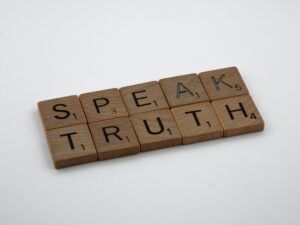A friend of mine wants to learn to cook. Right now, she doesn’t cook at all – she’s gotten by just fine without it, but in this new season of her life, she feels like it’s time. The problem is really with why she feels like she can’t cook. She’s totally overwhelmed at where to even begin: what should she learn first? Should she memorize recipes? Learn techniques? Become familiar with common spices?
In addition to being totally overwhelmed with how to begin, my friend is prone to perfectionism. She’s highly detail-oriented, too, so the thought of not following a recipe perfectly, of not cutting the carrots into perfectly even segments, of just getting things wrong, is holding her back.
I can sympathize! Perfectionism can be paralyzing. In my ongoing quest to let go of my own perfectionism, I’ve learned to let myself be a beginner, to improve slowly by just doing things frequently, and to allow myself to be bad at things without ultimately sacrificing excellence.
But there’s another thing I’ve been learning lately: any outer change I want has to be tied to an inner change as well.
Here’s what I mean: talking to my friend about her desire to change her status from “non-cook” to “cook” (an outer change) isn’t actually going to happen unless she also starts to move from perfectionist to non-perfectionist (an inner change.)
What’s going on inside (perfectionism) is having a huge effect on what’s going on outside (learning to cook.)
This is true for so many areas of our lives.
Some of us want the outward change of being thinner but we aren’t willing to make the necessary inward change—a shift away from an attitude of self-loathing, punishment, or obsession with body image-as-status—which would allow us to approach becoming healthier in peace.
Some of us want an outward change of careers, but we won’t make the inward change of letting go of the mindset that it’s just too difficult/ no one will hire us / we’re too old / etc., which would open up space for new possibilities.
Some of us want the outward change of having more time for rest or leisure or hobbies, but we aren’t willing make the inward change of rejecting popular cultural norms that tell us our value is in how busy we are, how much we can hustle, and what we can achieve: the kind of inward change that would finally permit us to live according to our well-discerned priorities and not the world’s.
Outward and inward change is deeply related, because who we are on the inside shapes and is demonstrated by what we do on the outside.
And what we do on the outside shapes and displays who we are on the inside.
There’s a constant interplay between character and action.
Who we are—our character—is both shaped by and shapes our actions.
If I am generous – a virtue that describes my character – I do generous things.
At the same time, as I do generous actions, I become a generous person – someone who has a generous character.
Of course, many of the changes we desire aren’t merely about virtue. (Learning to cook isn’t a virtue in itself, for example.) But usually if we want to do something differently, we do need to think beyond just acting differently, to actually becoming a different sort of person.
Do we need to let go of unhealthy dispositions? Free ourselves from false ideas? Reject unrealistic expectations?
As we discern each outer change, it can be helpful to ask if there’s an inner situation that’s holding us back. What inward changes need to accompany the outer one?






